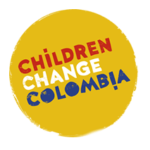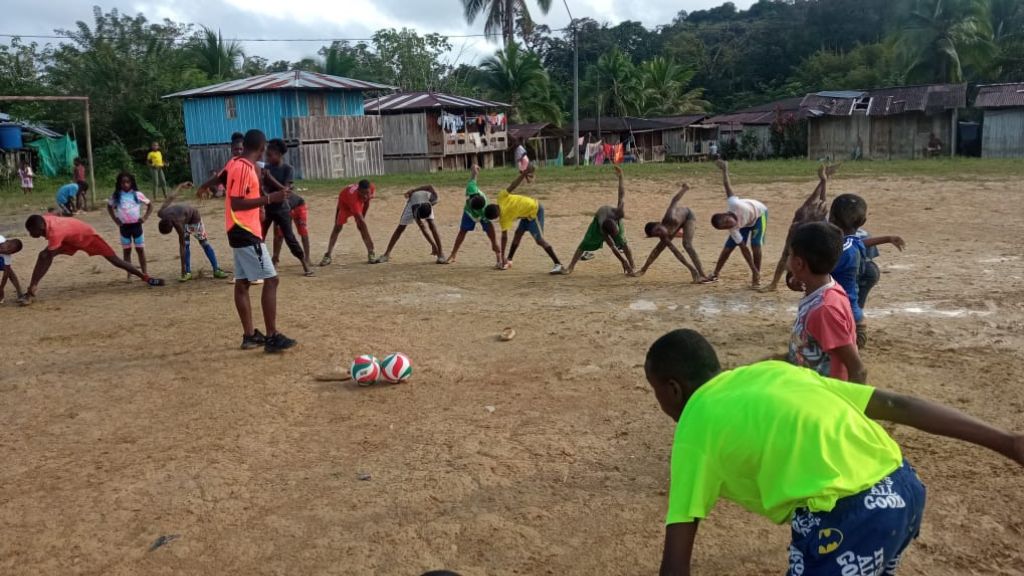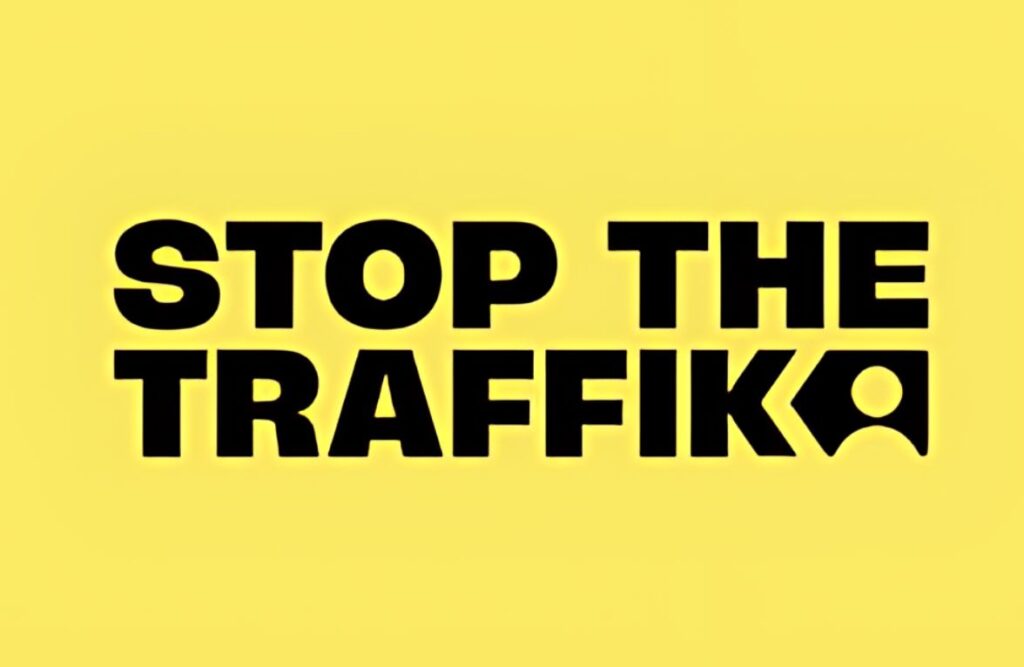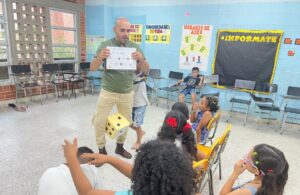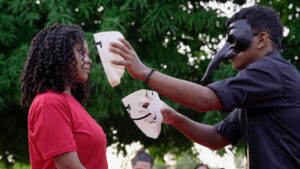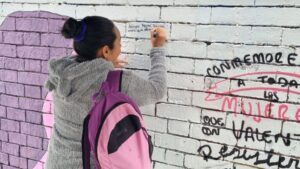After fleeing from a guerilla group and being placed in an overcrowded institution hours away from home where she felt watched and monitored 24/7, Cecilia was taken to a foster home in Bogotá supported by CRAN and Children Change Colombia as part of our work to help reintegrate children into society after being affected by the armed conflict in Colombia. Cecilia says: “During my first year [in the project], I often thought of escaping, I am glad I didn’t. My dream is to study hospitality and tourism in order to be a businesswoman and have my own hotel chain.”
Just like Cecilia, many children have had their childhood and dreams taken away from them by the violence around them, and in this blog, we delve deeper into the realities of the forced recruitment of children and adolescents in Colombia, and how we work with our partners to bring hope and new opportunities for them.
The Conflict
The armed conflict in Colombia, spanning over five decades, has left deep scars on society, especially on children and young people. Despite the signing of the Final Agreement for the Termination of the Conflict on 24 November 2016, the forced recruitment of children and youth remains a troubling reality in some areas of the country.
Forced recruitment of children and youth in Colombia has been a strategy used by various illegal armed groups, including guerrillas, paramilitaries, and criminal gangs. These children and adolescents, often from vulnerable communities, are compelled to participate in combat, intelligence, and logistics, exposing them to countless dangers and traumas such as being forcibly taken from their homes.
According to The National Army of Colombia (In a statement to the newsletter Cambio 30/07/2024), the ways in which children and youth are recruited into the war have evolved and it includes now the use of WhatsApp and Facebook. In addition to recruitment, which involves the victim living their daily life within the armed group, there are other ways to involve children and youth in the war that does not require the victims to live with the armed structure but to serve it while remaining in their place of residence. In these cases, children and young people are used for extortion or to provide information.
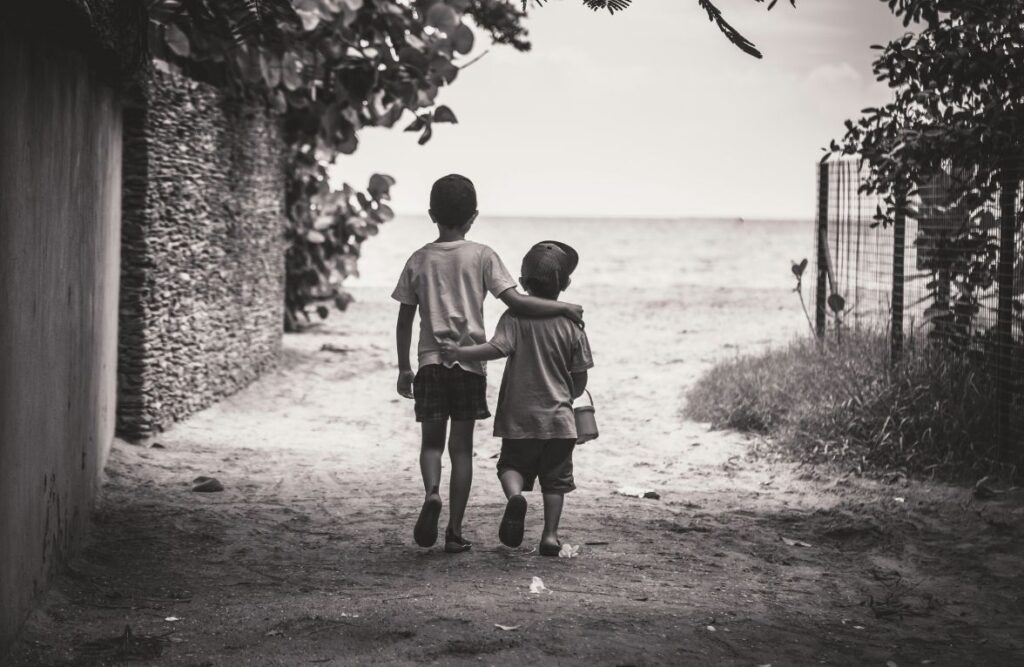
Shocking Statistics
In Colombia, 25 out of 32 departments are on alert for illicit recruitment and the use of minors for war, according to 2019 data from the Ombudsman’s Office, the United Nations, and the Organisation of American States.
As stated by the Commission of Truth, between 27,101 and 40,828 children and adolescents were reported to have been recruited from 1990 to 2017. In 2023, 184 children were reported recruited in Colombia, according to the Ombudsman’s Office. However, forced recruitment of minors is a crime with a high rate of underreporting due to the threats that the victims receive, the families’ fear of reporting, and in some cases, the adaptation of children and youth to life in armed groups. Additionally, the COALICO 2018 report (Coalición contra la vinculación de niños, niñas y jóvenes al conflicto armado en Colombia or Coalition Against the Involvement of Children and Young People in the Armed Conflict in Colombia in English) reveals that between 2008 and 2017, 2,907 minors disengaged from armed groups. This is a number that reflects both the success of some interventions and the persistence of the problem.
The Role of Children Change Colombia
At Children Change Colombia, we are committed to protecting the rights of children and youth. Some of the most important projects related to forced recruitment that we are involved in include:
Youth Reintegration into Society: A Community-Based Approach Towards Mental Health
The project aims to help children and young people victims of forced recruitment by armed groups to gain access to the resources and skills they need to deal with a variety of traumatic situations and stigmas. This project is implemented through the alliance with CRAN and Tiempo de Juego, in the Colombian departments of Cundinamarca and Meta. In the project we provide psychosocial support to victims of forced recruitment and foster homes who welcome them, to overcome recruitment traumas. Furthermore, the project helps children and youth to develop the necessary life skills to reintegrate into society, and educates local community organisations on how to protect children and adolescents from recruitment.
The project also promotes positive youth leadership, understanding of rights, and protective environments within and outside the family. We focus on the destigmatisation of children and youth victims and the restoration of their rights. The project has positively impacted 602 children and adolescent victims in two years, 70% of those have improved their well-being and mental health, and 75% have strengthened their positive leadership abilities.
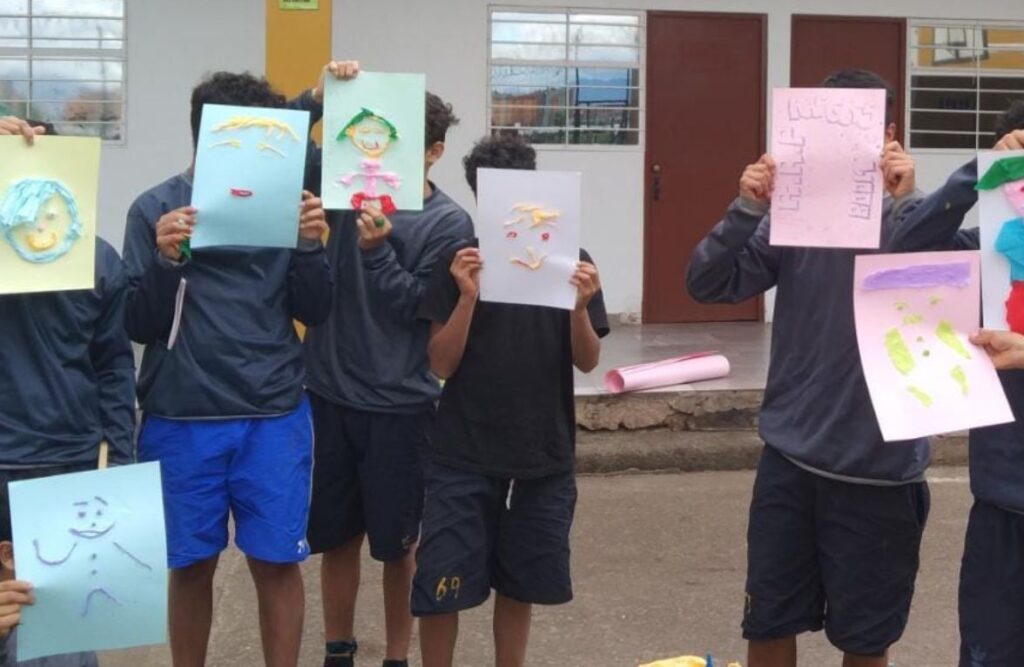
Prevent Child Recruitment and Sexual Violence Through Football
In 2023, 402 children and adolescents in Chocó benefited from the strengthening of socio-emotional skills through this project, carried out in alliance with ACADESAN,and the GIZ, (German development agency). In the UN’s 2030 Agenda for Sustainable Development, it recognised ‘sport as a means to promote education, health, development and peace’. The UN acknowledges the contribution of sport in encouraging tolerance and respect, leading to the empowerment of young people. Therefore, Football 4 Peace uses sport – in this case football – as an effective communication tool in promoting peace among children in the region and building a deeper sense of belonging in their communities.
In addition to this, the project also looks to provide football kits and restore football pitches so children can enjoy an environment of safe play with other young people in the community. We are also training teachers on the prevention of child recruitment and how to employ the ‘Sports with Principle’ methodology to foster trust, respect and tolerance, empathy, fair play and justice, and discipline.
In conclusion, the issue of forced recruitment of children and adolescents in Colombia remains a grave concern, despite the progress made since the signing of the Final Agreement for the Termination of the Conflict in 2016. The alarming statistics and evolving methods of recruitment underscore the persistent dangers faced by vulnerable youth in conflict-affected areas.
However, the tireless efforts of organisations such as Children Change Colombia and their partners offer a beacon of hope. Through community-based approaches, mental health support, and initiatives like using sport to strengthen socio-emotional skills, significant strides are being made to protect and rehabilitate affected children and adolescents. These programs not only aid in their reintegration into society but also work towards breaking the cycle of violence and ensuring a safer, more hopeful future for Colombia’s youth. The journey is far from over, but the resilience and dedication of these initiatives provide a solid foundation for ongoing progress and change.
CCC has also recently signed a partnership agreement with Stop the Traffik and is part of the Traffik Analysis Hub, an impactful collaboration across multiple sectors, united by the common goal of preventing human trafficking. Recent figures from the hub reveal a staggering statistic: 1 in 3 victims among the 50 million enslaved globally are children. Child recruitment and sexual exploitation are forms of human trafficking and we will work with them to tackle these problems in Colombia.
Written by: Andrea Lopez-Alba
